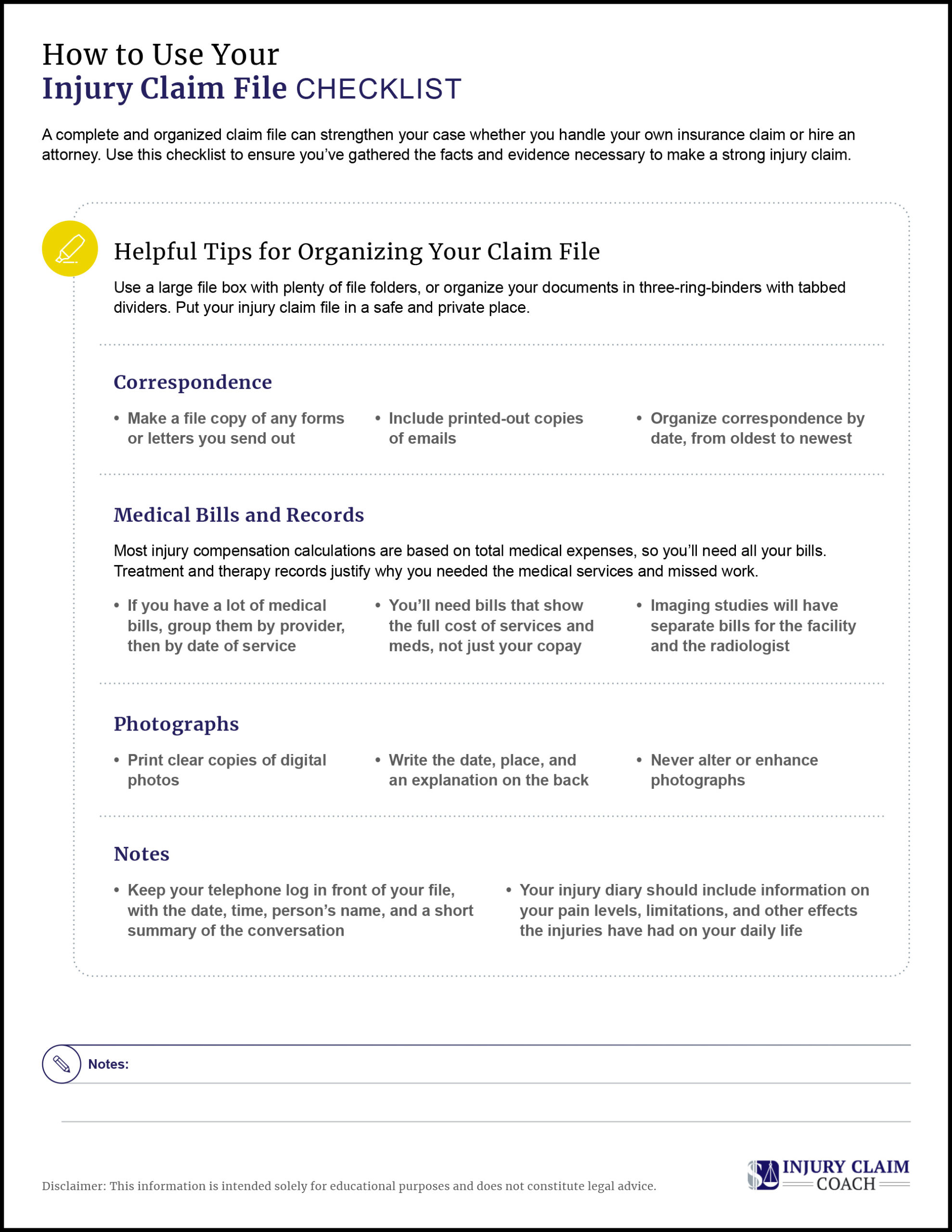Where to File a Personal Injury Claim

If another individual or company was responsible for an accident that resulted in injuries to you, they can be held liable and made to compensate you for your losses, such as medical bills and lost wages.
Potential claimants should document the incident, their injuries, and collect evidence such as medical records or invoices for property damage.
Statutes of limitations
Your personal injury claim must be filed within the statutes of limitation set by each state; these time frames vary based on where you live; generally speaking though, when an incident caused injuries occurs the clock begins ticking and must be filed by.
In order to avoid your case being dismissed, it is crucial that all pertinent information related to your injuries be collected – this may include medical records and invoices from providers as well as evidence of lost wages and property damage, among other documents.
Communication between yourself and your physician should take place to ascertain the severity of your injuries, collecting evidence such as witness testimony or photographs depicting damages to yourself and gathering photographs to document these. Furthermore, be sure to understand any noneconomic damages available such as pain and suffering claims, loss of enjoyment of life damages and disfigurement claims that are available.
Statutes of repose
Lawyers familiar with personal injury suits will likely understand statutes of limitation and repose, yet less-well-known repose statutes may remain unknown to them. Repose statutes tend to favor defendants more and set stricter time limits for filing cases than statutes of limitation do.
Statutes of repose are set off by events unrelated to the plaintiff’s injury and do not have any extensions or exceptions like statutes of limitation do; failure to assert them as an affirmative defense could prove costly, particularly in construction defect cases.
Texas has instituted a six-year statute of repose for building defects. This means that builders are responsible for rectifying any problems in homes constructed within this period.
Damages
If you have been injured in an accident, compensation may be available. This can cover medical treatment, property loss, lost income and other costs incurred as a result. Unfortunately calculating and proving these damages can be complex; thus it is wise to consult a personal injury attorney prior to proceeding with claims for compensation.
Economic damages are objectively verifiable financial losses that are objectively verifiable, such as medical care expenses, prescription costs and out-of-pocket medical costs. Receipts should be kept for these expenses as proof. You should also keep track of lost earnings such as wages, commissions bonuses and overtime income.
Non-economic damages, like physical pain and emotional distress, can be more difficult to quantify. By keeping records and collecting witness statements, providing them can help establish non-economic damages more accurately and establishing clear links between injuries sustained and mental/physical anguish experienced by you and their occurrence. An experienced lawyer may assist in doing this for you.
Insurance companies
Seeking compensation after an auto accident or workplace injury can be daunting, so having a lawyer on your side during this time can ensure you receive maximum damages compensation for your losses.
Insurance companies employ tactics to delay or deny personal injury claims. They may attempt to find legal loopholes or delay proceedings in hopes that victims give up and settle for less than they deserve.
Realizing maximum compensation requires knowledge and determination. Document all injuries, treatments, costs and communications; additionally keep a journal to describe how they have affected daily life; finally wait to submit a demand letter until after recovery has taken place before sending it.
Trials
Most personal injury cases settle without trial; however, if the defendant or insurance company offers too little compensation, your attorney may advise filing a lawsuit and proceeding to trial.
Finding a personal injury attorney with an impressive trial success record is essential to winning your claim successfully. They should be able to prove both who was at fault as well as your injuries and losses sustained due to negligence on the other side.
Personal injury (PI) claims can include medical malpractice, slip and fall accidents, product liability suits and any other forms of negligence-based litigation. Seeking compensation can help pay your bills and move on from any accidents or incidents that have taken place, while noneconomic damages such as pain and suffering compensation can help speed recovery for injuries suffered in an incident or accident.
